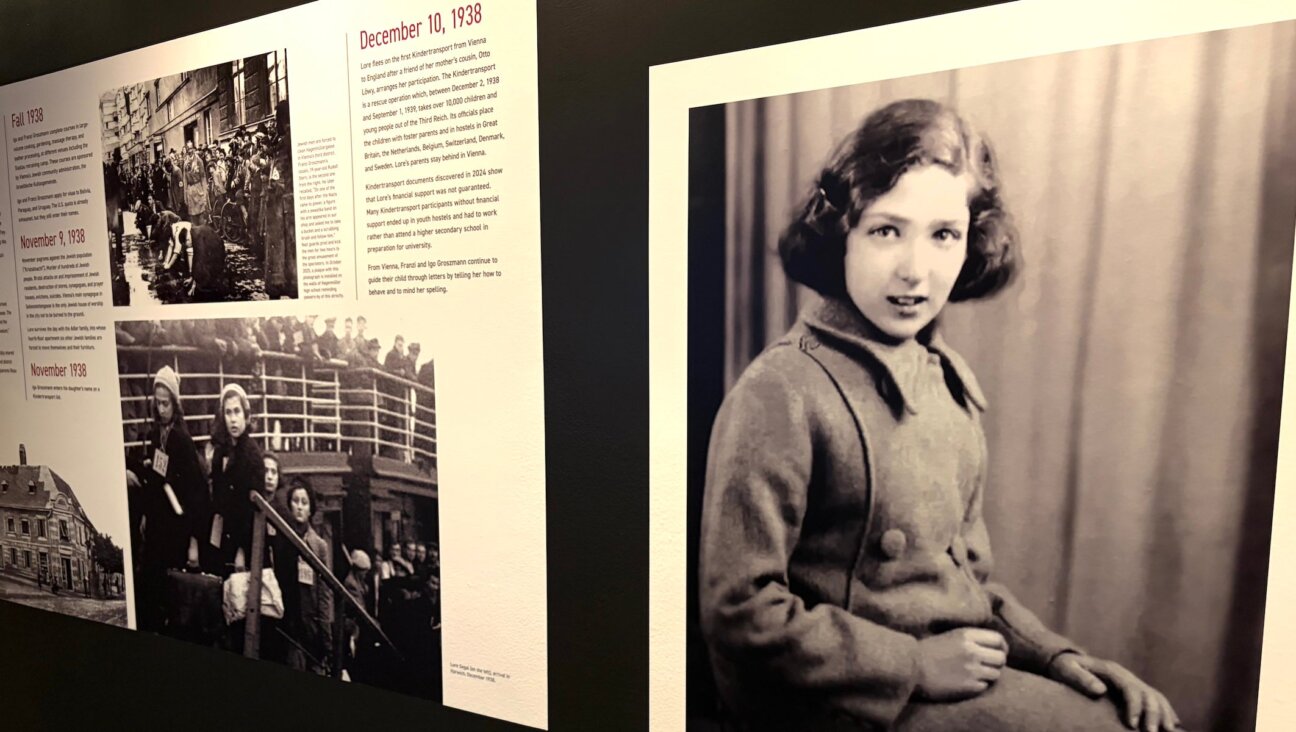Etiquette Maven Minds Your Manners
By day, Lorie Rudolph disguises herself as an unassuming insurance agent. “It has to pay the bills,” she said of her job. But come nights and weekends, the 53-year-old from Fayetteville, N.Y., transforms herself into the Jewish Etiquette Maven.
Two years ago, Rudolph created an etiquette-training program, JewishEM, to teach children and young adults how to feel comfortable and act appropriately in public — specifically, at Jewish life-cycle events. Through her workshops, she strives to instill respect, ethics and confidence in a generation she feels has departed from those virtues. “If you have ever seen children who are misbehaving at a bar/bat mitzvah, or unsure of themselves at a social event,” she notes on her Web site, JewishEM.com, “then you have seen the need for our training.”
What makes this self-anointed maven an expert? Rudolph has taught Sunday school at the Temple Society of Concord, in Syracuse, N.Y., since 1976. She also has been a camp counselor and an elementary school teacher. Add that to the rearing of her own three children—now 23, 18 and 15—and it seems that, given the misbehavior of the average kid, only Jane Goodall might have amassed more research data on monkey business.
“Manners and self-esteem have all gone by the wayside,” Rudolph lamented in an interview with the Forward, her voice measured and mellifluous, like a Jewish Mary Poppins without the accent. “People are in too much of a hurry to get things done.” She spoke seriously, echoing with frustration the enduring generational question: What’s the matter with kids these days? “Grandma is not necessarily there to hound, as she was when I was growing up,” Rudolph offers as one explanation. That leaves parents, who are often both working and sometimes simply don’t have the time to emphasize good manners. This has led busy parents to outsource etiquette training to such outside experts as Emily Post Institute, which since 1946 has been famously firming up handshakes, straightening posture and demystifying the salad fork.
Although Rudolph covers these basics, she knows that there is a glut of manner mavens. “Polite etiquette is polite etiquette,” she said. But she stressed that “if you need something with a Jewish base, I can walk you through all the stages of life-cycle events.” With groups of six to 20 kids, she begins each workshop with a meet-and-greet game. Then she sets up role-playing games, simulating such events as Sabbath dinner, religious services and bar/bat mitzvahs, using Jewish scripture along the way for support.
Rudolph always keeps kids in mind when creating engaging teaching methods. She tries out her workshops on her own children, whom she affectionately calls her “test cases.” “The most difficult thing is making fun something that is so possibly boring,” Rudolph admitted, “and to make it so that they want to attend a session.” That’s why Rudolph puts so much importance on being a hands-on instructor. “It’s about role play; it’s about getting kids involved.” She paces her two- to three-hour sessions in stretches of 45 minutes, because, as she explained, “that’s about as long as kids can sit.”
Given the restlessness of the average youth, Rudolph must have seen her share of faux pas. Her favorite? “Everything that comes to mind, I don’t want to put into print,” she said, invoking an etiquette trainer/client confidentiality covenant.
For Rudolph, etiquette is serious business. In the past year, JewishEM has serviced about 50 clients, at $500 a session (plus travel). As inquiries fly at her like spitballs from all sides, Rudolph is preparing to accommodate her growing business. “If it becomes so overwhelming,” she said with a hopeful chuckle, “I’ll have to give up my day job.”
















